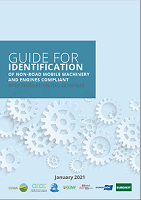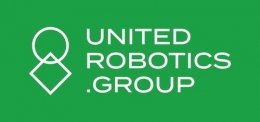
February 2017
European Parliament’s motion on new robotics regulation bolsters bureaucracy
Brussels, 17 February 2017 – Robotics and automation are key technologies increasing productivity and competitiveness of the European manufacturing industry. “The European robotics industry strongly advises the European Union not to over-regulate the sector,” says Walter Zulauf, Chairman of EUnited Robotics. “This would impose an enormous bureaucratic burden especially on small and medium sized enterprises, with no clear sustainable benefits. Regulations must take care not to hamper innovation and Europe’s competitiveness. To reject considerations towards a robot tax is a good sign in this direction."
The European Parliament’s resolution suggests a set of measures to the European Commission that should apparently overcome supposedly negative legal and ethical implications of robotics and artificial intelligence for the European citizens. EUnited Robotics urges all stakeholders to use the terms “robot” and “robotics” with greater precision rather than applying them to a wide range of artificial intelligence and software technologies. The definition of what should be covered by the new regulation still remains vague, lumping together very different systems like self-driving cars, medical devices, toys, industrial robots, software and consumer electronics.
While the development of autonomous cars might urge the need to review liability rules in the field of traffic and transportation, currently existing liability rules are future-proof for industrial robot applications. EUnited Robotics does not expect a degree of autonomy of robots on the market in the next ten to fifteen years where humans or companies designing, making and operating them could not be held accountable. The technological possibilities of autonomy should not be confused with machines developing an own consciousness or surpassing human intelligence. To establish an own legal status of an “electronic person” for autonomous robots, as the European Parliament asked the European Commission to consider in the long run, is not deemed necessary.
Introducing compulsory insurance, a compensation fund, and a complicated system of registration will only impose huge costs and enormous bureaucracy for SMEs producing and using robots in Europe, without providing any benefits. The focus should rather be on developing further safety standards for novel applications, as is currently proactively tackled by robot manufacturers in international standardization activities.
“We welcome the decision of the Parliament to vote against the idea of a robot tax,” states Walter Zulauf. “Some experts anticipate that robots might lead to unemployment, but actually there is no such evidence. Through raising productivity and efficiency, robotics technology rather safeguards production within Europe and even enables reshoring of production that had been shifted to low-wage countries outside Europe,” Zulauf adds. As statistical figures by the IFR[1] show, countries with a high degree of robots in manufacturing tend to have a lower level of unemployment. Whereas Germany with its industrial robot population of 183,000 reaches record levels of employment, France with only 32,000 robots installed is confronted with high levels of unemployment. A robot tax would not have created, but destroyed jobs.
Innovations in robotics and automation have contributed significantly to improved working conditions, higher safety levels, product quality and overall higher quality of life, as products become more affordable in higher quantities. There is even more potential in the future, e.g. overcoming challenges of an aging society by human-robot collaboration and medical and care robots, with a coherent but not hindering legislation at European level. In this context, we welcome the initiative of the EP to tackle data protection and data ownership issues.
> Download press release: European Parliament’s motion on new robotics regulation bolsters bureaucracy
Industrious Brussels EU District, Avenue des Arts 6-9, 1210 Brussels, Belgium, +32 490 57 57 65
Transparency Register number: 0289344948-82
















































































































